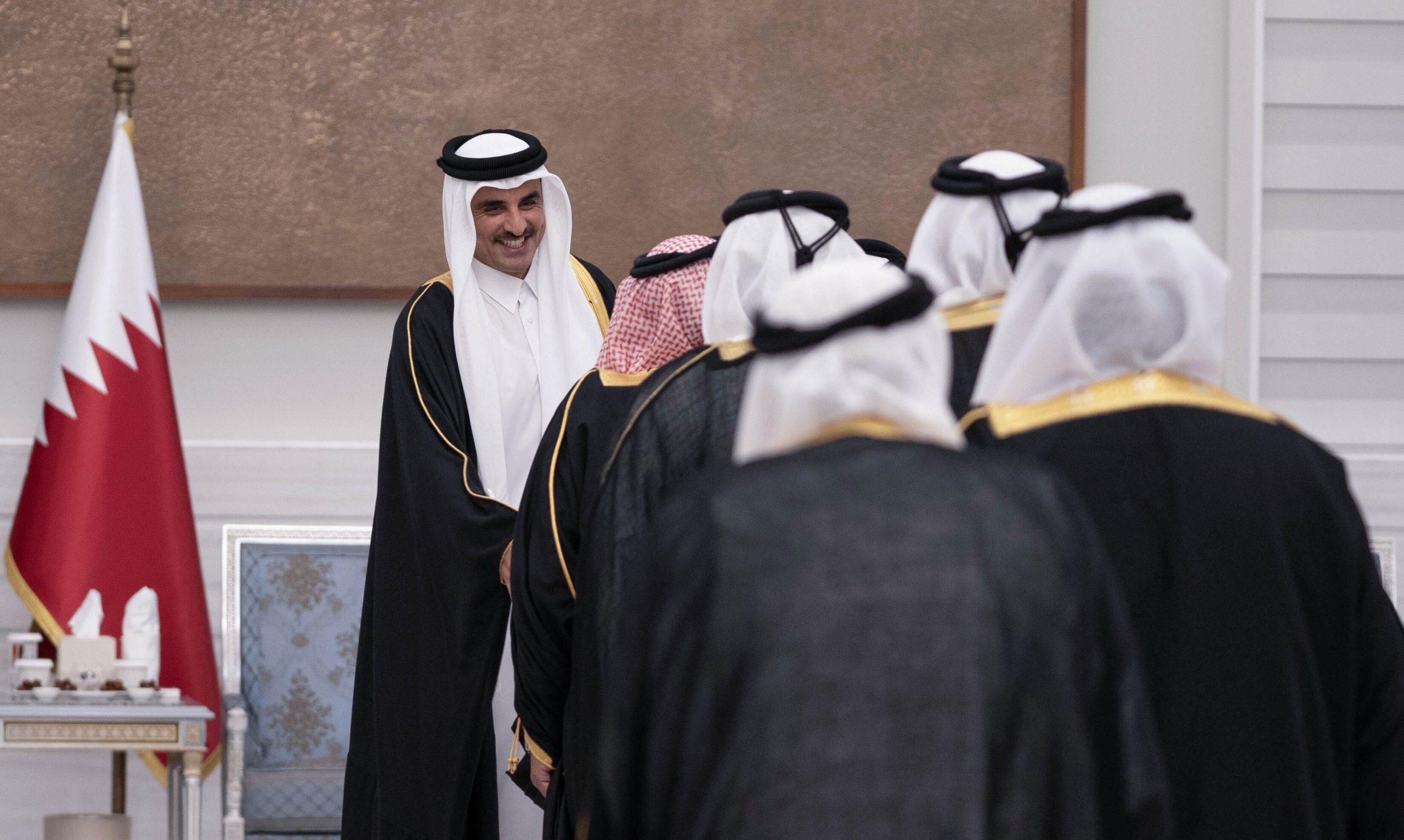Just before Ramadan, Sheikh Tamim issued an Amiri gesture pardoning several prisoners.
Qatar’s Amir Sheikh Tamim bin Hamad Al Thani organised an Iftar feast on Monday to honour scholars, judges, clerics, individuals from the Public Prosecution, and representatives from the education sector for the holy month of Ramadan.
Hosted at the Lusail Palace, guests included the Personal Representative of the Amir, Sheikh Jassim bin Hamad Al-Thani, alongside other high figures, ministers, and senior officials.
The Amir also received well-wishers at Lusail Palace on the first day of the holy month, immediately after the Tarawih prayer.
Just before Ramadan, Sheikh Tamim issued an Amiri gesture pardoning a number of prisoners.
Ramadan in Qatar
On March 3, the General Department of Endowments at the Ministry of Awqaf and Islamic Affairs announced their campaign to provide over 700,000 Iftar meals across 20 locations in Qatar. This drive will feed at least 24,000 fasting individuals daily.
In Qatar, in between these two important meals lies another that takes place – encapturing local hospitality and generosity. Namely, the ghabqa.
The Ramadan ghabqa, which can translate to a gathering around a table, takes place late at night after Iftar.
Loved ones invite families and friends into their homes or majalis to indulge in a delectable variety of dishes and drink from the free-flowing pots of karak or kahwa until they are full.
In 2015, the Qatari Ministry of Arts, Culture and Heritage included the local Ramadan ghabqa tradition within its national inventory list of intangible cultural heritage.
The ‘Ramadan’ cultural category described the ghabqa as a meal “that is not done every day.”
Additionally, “this meal is taken after midnight and food served in this meal is not different from that of the breakfast. Families and friends get together once they are invited by one of them.”







